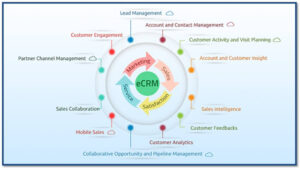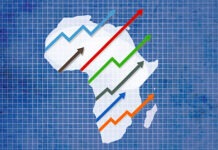Welcome to this post on What is the CRM System and practices, via Afrokonnect. Have you ever had a dispute, called the customer care number in anger to vent your frustration but the agent in charge soothed you with words? You would have been wondering after the call if you have been jinxed but NO, that’s the power of a proper application of a CRM System.
The CRM System is known to few but is been implemented by many; a simple kiosk owner or a popular supermarket salesperson interact with various types of customers on daily basis so the manner you interact with customers and address their grievances will show if your business will be successful or get lost in the drain.
CRM System and Practices Explained
The CRM System which can also be known as “Customer Relationship Management” are principles or guidelines which an organization or a business owner is expected to follow during their interaction with a customer. The system focuses fully on the customer as the organization is expected to provide services, resolve disputes of the customer.
CRM system can be used in predicting, analyzing trends and customer behavioral patterns; in general the system serves as a tool to ensure that success of the customer overall experience.
In recent times, CRM has been improved into tech and can be seen in Artificial intelligence; it is been used as a tool to manage external interaction between an organization and a customer. CRM systems have been used in various communication channels such as:
- Social networks
- The organization website
- Live chat
- Telephone and Direct mail.
Why is CRM System beneficial to your business?
The CRM System isn’t been overlooked by bigger businesses as I said in my previous article the lack of online presence affects various businesses and causes redundancy. The CRM System is the fastest-growing enterprise application software category in the world and its value is expected to skyrocket to an estimate of $114.4 billion by 2027.
For a business to last long in the 21st century it needs a strategy built round the customer and supported by the right technology. The CRM System is out to provide succor as it provide businesses with a clear overview and reliable information on their customers.
Imagine collating various customers’ information manually, your workspace will be a mess no matter how neat you are but the CRM system provides you with all these information in a single, simple and customized dashboard. The CRM system can provide you with various information such as:
- A customer’s pervious history with your business
- Their thoughts on your competitors
- Likes and dislikes of your brand
- Outstanding issues with your brand
- Even their social media activity.
The 21st century is far different from others as it is more data based; in this present time predictions accompanied with sentiments aren’t useful but ones associated with data are more reliable.
The CRM system can provides organizations with strategies that are based on various customers’ data at their disposal. Organizations making immense profits have moved on from using the CRM system just as a marketing tool and embedded in into their operations just like AI; it has been used in various branches of the organization such as finance and most especially customer service.
Integration of CRM into your organization operations ensures that the customer needs are at the forefront of your operations.
Types of CRM Systems
Presently there are 4 major types of CRM Systems and they are:
1) Collaborative CRM Systems
This type of CRM System enables organizations connect multiple departments most especially marketing, sales and customer service. This type is very important as it ensures that they work in cooperation and based their operations on a single source which provides them accurate customer information hence ensuring no conflict of data.
In a collaborative CRM System , a sales representative will have full access to the customer information as a marketing representative hence both departments’ ideas and objectives align. Having speedy access to customer data across the organization ensure that they provide the customer with a seamless experience throughput his/her interaction with the organization.
2) Operational CRM Systems
While collaborative CRM system has emphasis on unified data management, Operational CRM system has emphasis on simplifying tasks for various customer facing departments. It focus on create easy-to-use tools to monitor and make it easy for customer facing departments to operate hence more efficiency in their performance.
Read Also:
3) Analytical CRM Systems
As the name implies, this type of CRM system isn’t based on providing shallow information to customer facing departments but in-depth analysis as it provides the organizations with:
- Interactive dashboards
- Campaign pipelines
- Workflow-embedded analytics
- AI/ML-powered predictive analysis
- Text & Speech analytics, etc.
This type of CRM systems isn’t suitable for a new organization trying to break into the market but large organizations which are looking for solutions to envisage data.
4) All-in-one CRM Solutions
What are looking for in a CRM system? All-in-one CRM solutions isn’t only used in customer facing departments but the organization operations in general as it helps the company to automate IT operations.
It provides various services such as:
- Workflow automation
- Collaboration
- Analytical capabilities.
These capabilities outlined above aids the organization to enable full-cycle automation of all its units; it can be integrated with data providers to ensure seamless data sharing and also serve as the main institution for both customer facing and other operational units.
Frequently Asked Questions (FAQs)
1) How does a CRM System Cost?
This is greatly affected by a number of factors, namely:
- Size of business
- Numbers of users on the platform
- Software Vendor
The reason i highlighted the following reasons above is due to the high price of set-up and implementation fees as they can usually run into thousands of dollars. You may ask why? This is due to the system policy as it charges businesses per-user per-month and the price can range between $15 – $300 per-user per-month.
Conclusion

The CRM System has helped a lot in strengthening the relationship between the organization and the customer and boosting the company’s revenue. Customers loves it when they are treated as a VIP and won’t look to other of your competitors who offer the same services because of the personalized treatment they are getting. Thanks for reading and we hope to see you another time on Afrokonnect.ng.















